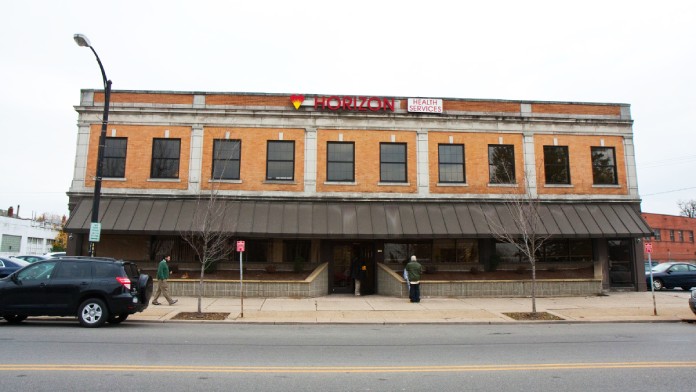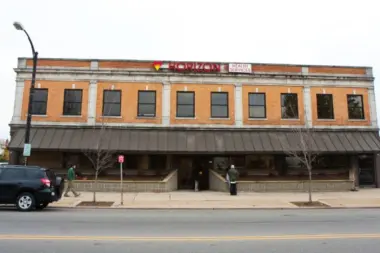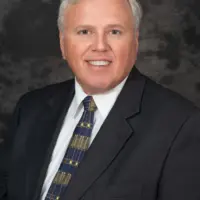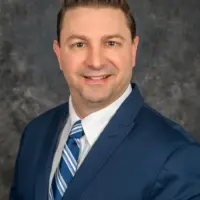About Bailey LaSalle Recovery Center
The Bailey LaSalle Recovery Center is situated in Buffalo, New York. It’s one of 20 Horizon Health locations across Erie, Niagara and Genesee Counties providing substance use treatment. Virtual options for remote consultations are available, and they treat clients who have co-occurring mental health and substance use challenges. Smoking and vaping are not allowed.
Medications May Help With Cravings
Clients may be offered standard outpatient care, intensive outpatient programs or partial hospitalization programs, depending on how much support they need. Medication assisted treatment (MAT) is also available with FDA-approved buprenorphine, Vivitrol and Sublocade to help manage cravings and withdrawal symptoms.
Alternatives to Incarceration
They offer a community focused atmosphere that can be beneficial for clients ages 12 through older adulthood. They provide specialized care for veterans and their families, LGBTQ clients, and pregnant and postpartum women. Services include treatment alternatives to incarceration, along with programs tailored for those in the criminal justice system. Anger management is also available.
Payment Options Include TRICARE
Payment options include Medicaid, Medicare and state funded insurance plans. Most private insurance is accepted, including Aetna, Highmark and Optum. Military insurance like TRICARE is also accepted. Clients can pay out of pocket, and sliding scale fees or payment assistance programs are available for those who qualify.
Blending Traditional and Creative Therapies
I like that they offer yoga and art therapy as a complement to traditional therapies like cognitive behavioral therapy, dialectical behavior therapy, and individual and group counseling. Therapy can also include your family to help improve relationships, and they use motivational interviewing, trauma focused counseling including EMDR, as well as 12-step program facilitation.
Nearby Places Can Complement Your Recovery
If you’re looking for someplace peaceful for quiet reflection, the Richardson Olmsted Campus has beautifully landscaped grounds and historic buildings. Delaware Park is close by and has open green spaces and walking trails so you can unwind and reset.
For local engagement, visit the Buffalo Museum of Science or the University at Buffalo South Campus for educational resources and local events that can support your recovery.
Latest Reviews
Rehab Score
Gallery


Other Forms of Payment
Medicaid is a state based program that helps lower-income individuals and families pay for healthcare. Medicaid covers addiction treatment so those enrolled can use their coverage to pay for rehab. When a program accepts Medicaid the client often pays very little or nothing out of their own pocket.
Private insurance refers to any kind of healthcare coverage that isn't from the state or federal government. This includes individual and family plans offered by an employer or purchased from the Insurance Marketplace. Every plan will have different requirements and out of pocket costs so be sure to get the full details before you start treatment.
Self-pay involves paying for treatment out of your own pocket. You can use savings or credit, get a personal loan, or receive help from family and friends to fund your treatment. If you don't have insurance or your insurance plan doesn't cover a specific program, self-pay can help ensure you still get the care you need.
Sliding scale payments are based on a client's income and family size. The goal is to make treatment affordable to everyone. By taking these factors into account, addiction recovery care providers help ensure that your treatment does not become a financial burden to you or your family, eliminating one barrier to care.
Medicare is a federal program that provides health insurance for those 65 and older. It also serves people under 65 with chronic and disabling health challenges. To use Medicare for addiction treatment you need to find a program that accepts Medicare and is in network with your plan. Out of pocket costs and preauthorization requirements vary, so always check with your provider.
Military members, veterans, and eligible dependents have access to specific insurance programs that help them get the care they need. TRICARE and VA insurance can help you access low cost or no cost addiction and mental health treatment. Programs that accept military insurance often have targeted treatment focused on the unique challenges military members, veterans, and their families face.
Addiction Treatments
Levels of Care
Outpatient Programs (OP) are for those seeking mental rehab or drug rehab, but who also stay at home every night. The main difference between outpatient treatment (OP) and intensive outpatient treatment (IOP) lies in the amount of hours the patient spends at the facility. Most of the time an outpatient program is designed for someone who has completed an inpatient stay and is looking to continue their growth in recovery. Outpatient is not meant to be the starting point, it is commonly referred to as aftercare.
Treatments
Many of those suffering from addiction also suffer from mental or emotional illnesses like schizophrenia, bipolar disorder, depression, or anxiety disorders. Rehab and other substance abuse facilities treating those with a dual diagnosis or co-occurring disorder administer psychiatric treatment to address the person's mental health issue in addition to drug and alcohol rehabilitation.
Mental health rehabs focus on helping individuals recover from mental illnesses like bipolar disorder, clinical depression, anxiety disorders, schizophrenia, and more. Mental health professionals at these facilities are trained to understand and treat mental health issues, both in individual and group settings.
Programs
Adult rehab programs include therapies tailored to each client's specific needs, goals, and recovery progress. They are tailored to the specific challenges adult clients may face, including family and work pressures and commitments. From inpatient and residential treatment to various levels of outpatient services, there are many options available. Some facilities also help adults work through co-occurring conditions, like anxiety, that can accompany addiction.
Young adulthood can be an exciting, yet difficult, time of transition. Individuals in their late teens to mid-20s face unique stressors related to school, jobs, families, and social circles, which can lead to a rise in substance use. Rehab centers with dedicated young adult programs will include activities and amenities that cater to this age group, with an emphasis on specialized counseling, peer socialization, and ongoing aftercare.
Clinical Services
Cognitive Behavioral Therapy (CBT) is a therapy modality that focuses on the relationship between one's thoughts, feelings, and behaviors. It is used to establish and allow for healthy responses to thoughts and feelings (instead of unhealthy responses, like using drugs or alcohol). CBT has been proven effective for recovering addicts of all kinds, and is used to strengthen a patient's own self-awareness and ability to self-regulate. CBT allows individuals to monitor their own emotional state, become more adept at communicating with others, and manage stress without needing to engage in substance abuse.
Dialectical Behavior Therapy (DBT) is a modified form of Cognitive Behavioral Therapy (CBT), a treatment designed to help people understand and ultimately affect the relationship between their thoughts, feelings, and behaviors. DBT is often used for individuals who struggle with self-harm behaviors, such as self-mutilation (cutting) and suicidal thoughts, urges, or attempts. It has been proven clinically effective for those who struggle with out-of-control emotions and mental health illnesses like Borderline Personality Disorder.
Group therapy is any therapeutic work that happens in a group (not one-on-one). There are a number of different group therapy modalities, including support groups, experiential therapy, psycho-education, and more. Group therapy involves treatment as well as processing interaction between group members.
In individual therapy, a patient meets one-on-one with a trained psychologist or counselor. Therapy is a pivotal part of effective substance abuse treatment, as it often covers root causes of addiction, including challenges faced by the patient in their social, family, and work/school life.
Trauma therapy addresses traumatic incidents from a client's past that are likely affecting their present-day experience. Trauma is often one of the primary triggers and potential causes of addiction, and can stem from child sexual abuse, domestic violence, having a parent with a mental illness, losing one or both parents at a young age, teenage or adult sexual assault, or any number of other factors. The purpose of trauma therapy is to allow a patient to process trauma and move through and past it, with the help of trained and compassionate mental health professionals.
Staff

Erin E. DiGirolamo, C.P.A.
CEO

Joseph V. Mure, MD, FASAM, FAAFP
Chief Medical Officer

John Ruffolo
CFO

Jacob Haacker
CIO
Contact Information
3020 Bailey Avenue
Buffalo, NY 14215